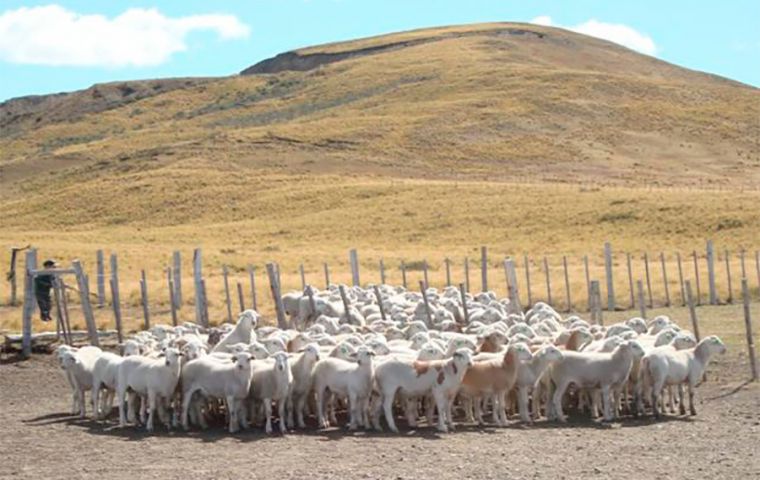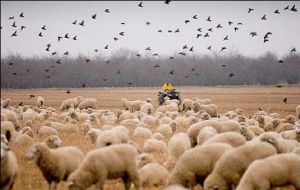MercoPress. South Atlantic News Agency
Climate change, weak markets and high costs challenge wool farmers in Punta Arenas
 (Asogama) president, Cristian Concha Paeile gave a picture of the challenges and prospects the region's farmers are facing
(Asogama) president, Cristian Concha Paeile gave a picture of the challenges and prospects the region's farmers are facing  Lamb prices are good, but wool is no longer attractive, according to Asogama president, because of an erratic demand
Lamb prices are good, but wool is no longer attractive, according to Asogama president, because of an erratic demand After two years running with no shows, on Sunday ended the 69th Livestock Exposition of Magallanes Region, extreme south of Chile and which took place at Punta Arenas. Following a parade of the best cattle and sheep, there was a display of Chilean horses and riders' skills, and a colorful performance by the Municipal Folklore Ballet.
However most outstanding was the speech from Magallanes Breeders Association (Asogama) president, Cristian Concha Paeile who gave a picture of the challenges and prospects the region's farmers are facing, including climate change, markets, costs, competing species and rustlers.
Concha Paeile said that the ended livestock year was one of the driest in the last fifty years in Magallanes, impacting directly on the food for animals and the recovery of pastures. Not only snow has been scarce but also rainfall has been minimum. This has created a vicious cycle with too many cattle in paddocks with insufficient food and little time for the fields to recover. “Climate in Magallanes, and in the world, is changing and we must adapt to the new circumstances, trying to keep the high quality standards of our livestock”, underlined the head of Asogama
On the economic side, uncertainty in wool markets, depressed global demand because of the pandemic, plus limited domestic purchasing power, has made wool farming less attractive. Lamb on the other hand is the bright side, given a steady demand and a weak Peso against the dollar. “But this is in the short term, and we don't know if that is how markets will behave mid and long term”
Another factor pointed out was the number of guanacos, camelids which compete for food with sheep and cattle. “We believe hunting quotas remain insufficient to keep their numbers at a level that does not interfere with farm production”, Yes they have a right to exist and roam but we need to have a wider view of the situation. This problem is also extensive to other species such as beavers, hares and predators on flocks and herds, but is also a situation common to the whole of Chile.
Finally Concha Paeile mentioned rustlers, which have been repeatedly reported to local police and Carabineros. He proposed again re establishing sharp controls at the Kon Aiken, a beach used by thieves of mutton and beef to transport the product across to Punta Arenas. “We need the roadblock at Kon Aiken again to stop robbers and clandestine slaughtering; we appeal to farmers to report all incidents, since statistics can show how negative this impact is for livestock breeding”




Top Comments
Disclaimer & comment rulesCommenting for this story is now closed.
If you have a Facebook account, become a fan and comment on our Facebook Page!